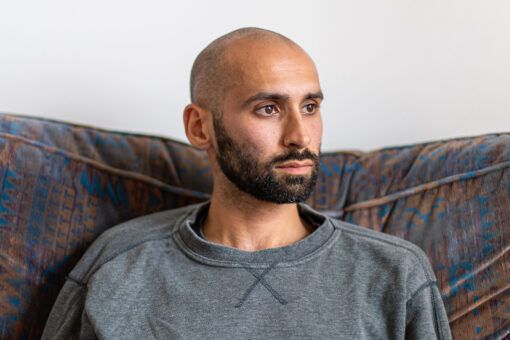We’re close to winning a new assisted dying law – but we may need to take further campaign actions together. Can we email you updates and vital actions?
Dying people ending their own lives
Warning
This content discusses terminal illness and dying people ending their own lives. Find support and information around terminal illnesses, end-of-life care, bereavement, suicidal thoughts and mental health.
The assisted dying ban means dying people end their own lives
The ban on assisted dying means that some terminally ill people feel that their only option is to end their own life.
Up to 650 dying people end their own lives every year, based on research and localised studies of coroners records. A 2014 Freedom of Information request to Directors of Public Health found that approximately 7% of deaths recorded as suicides in England involve people who are terminally ill.
I am not suicidal. If I could choose life over my inevitable fate I would, but I can’t.
Suicide is the wrong term for dying people ending their own lives
Assisted dying is not suicide. Suicide is when a person tragically and intentionally ends their own life. Dying people who want an assisted death do not want to die and would choose life if they had the option. Assisted dying is about exercising control over the manner and timing of a death that is inevitable and imminent.
The impact on dying people
The blanket ban on assisted dying is unsafe. It puts dying people in danger, when they most need support and protection.
Research has uncovered cases of dying people in the UK who have ended their own lives in a range of highly distressing ways. Others attempt to end their own lives but worsen their condition. It can also lead to loneliness, as people may not feel able to discuss their plans with family and friends for fear of implicating them.
The impact on family and friends
Friends and family can suffer more when a dying person ends their own life.
They might discover their loved one’s body, lose the opportunity to have an open conversation about their feelings and intentions, or feel regret about the way their loved one died. They may also worry about the potential legal implications, including the possibility of prosecution and imprisonment.
If you want to understand more about these issues, our report, The Last Resort, has more detail. Warning: the report contains accounts of dying people ending their own lives.
There is a better alternative
Countries where assisted dying is legal show that there is a better way. In one study, family caregivers of people who had accessed assisted dying overwhelmingly viewed the quality of their loved one’s death more favourably than the one they anticipated by ‘natural causes’, because it prevented unnecessary suffering.
We believe assisted dying should be legal across the British Isles for terminally ill, mentally competent adults. A change in the law would mean that many dying people could avoid painful, lonely, and undignified deaths.
